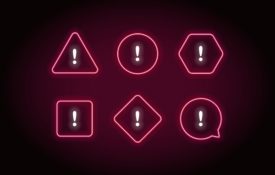-
Black Americans Support the Floyd Protests. Whites Are Divided. Here’s Why.
APS Member/Author: Fabian G. Neuner After a Minneapolis police officer killed George Floyd, hundreds of thousands of protesters took to the streets, both across the United States and around the world. Americans’ reactions both to Floyd’s death under officer Derek Chauvin’s knee and to the ensuing protests have followed a familiar script. Some see it as further evidence that U.S. policing is deeply racist; others think protesters are overreacting to officers trying to do their jobs. Opinion largely divides along racial lines, with some variation by party affiliation. Why do black and white Americans have such different perceptions of what happened?
-

APS Message about Participation in #ShutDownSTEM
Message to the APS membership on our participation in the #ShutDownSTEM campaign and the need for action moving forward.
-

The Following News Release Contains Potentially Disturbing Content: Trigger Warnings Fail to Help and May Even Harm
New research confirms trigger warnings have little or no benefit.
-
Can We Reverse Aging? The Astonishing Power Of The Human Mind
The human mind has always been an object of great astonishment. A tremendous amount of research has been done to understand the functioning and power of the brain. Scientists have pushed the boundaries of possibilities and have introduced us to facts that have left us flabbergasted. In the year 1981, renowned Harvard social psychologist Ellen Langer conducted one such study (subscription required). She was on a mission to test that if we could turn the clock back psychologically, could we also turn it back physically? She was going to test whether our attitude, beliefs and mindset played a role in our physical health, more specifically, in our aging process.
-
In Wake Of George Floyd’s Death, Psychologist Reexamines Racial Bias In Policing
The back-to-back deaths of George Floyd and Breonna Taylor have spurred protests across the country. Taylor, a 26-year-old black woman, was shot multiple times by Louisville Metro Police Department officers after they forced their way inside her home. The officer who arrested Floyd, a 46-year-old black man, was videotaped kneeling on Floyd's neck for multiple minutes before Floyd died. The current moment raises serious questions about the future of policing, how bias affects police work, and the mistrust many communities of color feel toward the police. Stanford University’s Dr.
-
Protests Over Killings of Black People Could Erode Racism, Researcher Says
Images and reports of people taking to the streets to protest last month’s killing of George Floyd by Minneapolis police have sparked conversations among Americans on police use of force to control crowds, the morality of looting, and the destruction of property to vent anger and garner attention for a cause. Divergent perceptions of the unrest have roots in unconscious biases and knowledge of historical contexts, says James Jones, a professor emeritus of psychology at the University of Delaware, Newark, who has studied the psychology underlying prejudice and racism.

